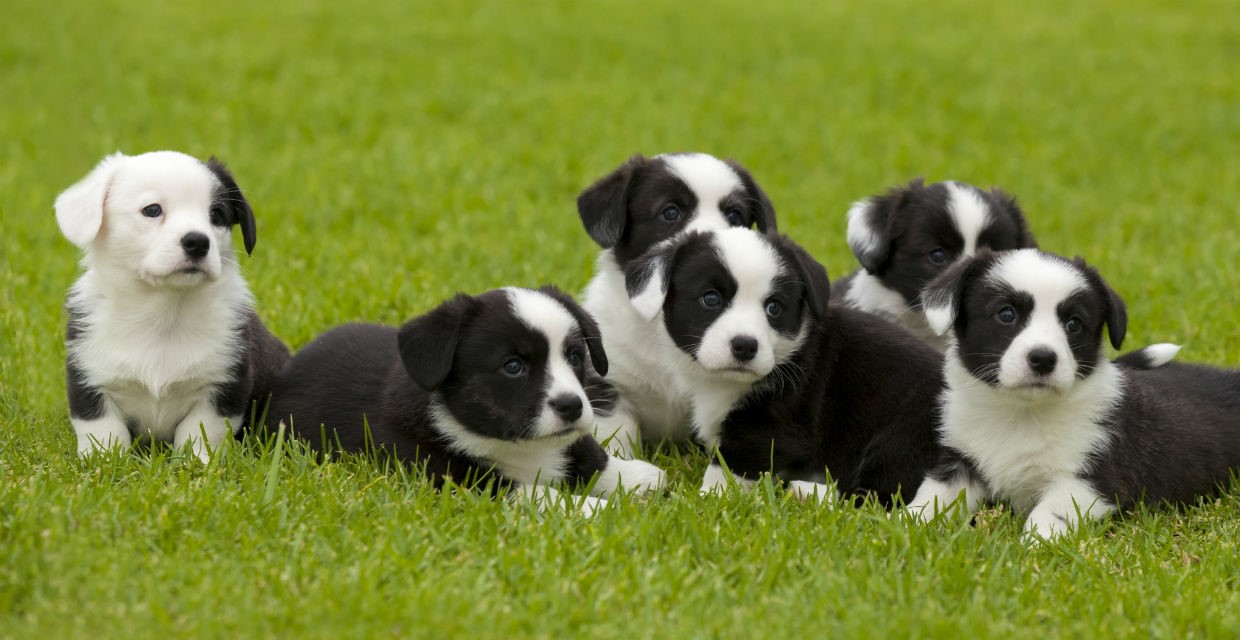Puppies learn and develop at an exponential rate in their first two months of life and this includes a number of important behavioural milestones. Let’s take a look at the behavioural milestones puppies reach during their first eight weeks.
Newborn to Two weeks
At this stage puppies are deaf and blind because their ears and eyes are still closed. Behaviourally, there’s not much going on during the first two weeks of life other than lots of sleeping and feeding.
Two to Four Weeks
From about two weeks of age puppies begin to gradually see and hear the world around them. They take their first wobbly steps and start to explore the environment. This includes learning how to communicate with their mother and littermates.
The socialisation process begins during this stage as puppies learn through experience how to play and interact appropriately with their siblings and mother. They also learn important lessons about interacting and bonding with people during this stage of development.
Pups begin to learn bite inhibition and the point at which play is too rough at this time.
Four to Eight Weeks
Socialisation continues during the second month and puppies should be exposed to different people, things, environments and animals they will encounter in future in a positive way. These positive socialisation experiences help puppies learn what is safe in their world and also helps avoid the development of fear responses to everyday happenings in future.
It's important to understand the puppies go through their first ‘fear period’ at seven to eight weeks old.
This can mean a more exaggerated fear response to new or unfamiliar people, places or things. Taking time to reassure your puppy and relieve scary things with treats and pats will help them transition through this behavioural milestone more easily.
Toilet training can also begin at around seven weeks as puppies are gaining better control over their bladder and bowels. Many breeders start this process before puppies go to their new homes.
Questions to Ask the Breeder
Given these very early milestones, there are questions you should ask when choosing a breeder, to ensure your new puppy’s behavioural development has been nurtured. Here are some examples of questions to ask…
- How have the puppies been socialised up until now?
- Have the puppies met different people, animals, kids etc?
- Are the puppies used to everyday things including the vacuum cleaner, hairdryer, lawn mower etc?
- Have the puppies begun toilet training?
- What are the their personalities like?
Asking these questions can help you identify any potential problems, and choose a puppy best suited to your individual circumstances.
























